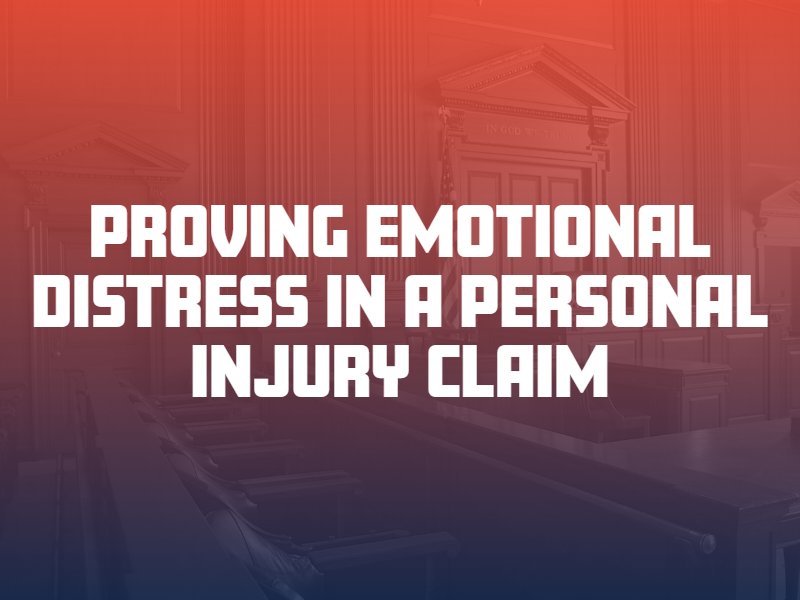An accident in Albuquerque can cause more than just physical injuries. It can also cause significant emotional distress. Living through a traumatic accident, as well as dealing with related serious injuries, can have an intangible effect on you as a victim. In New Mexico, you can seek financial compensation for emotional distress in addition to your physical injuries, medical bills and economic losses. It is your burden as a victim, however, to prove your emotional distress.

What Is Emotional Distress?
Emotional distress is a component of pain and suffering damages. In personal injury law, pain and suffering is an umbrella phrase that refers to many different types of intangible harm suffered by the plaintiff. It encompasses the general feelings, sensations and mental health conditions that a general victim would be expected to experience due to the traumatic nature of the accident and injury.
Emotional distress is a broad term that can refer more specifically to:
- Physical pain or discomfort
- Depression
- Mental anguish
- Anxiety
- Stress
- Fear
- Insomnia
- Flashbacks
- Lost quality of life
- Lost enjoyment
- Inconvenience
- Humiliation
There is no single definition of emotional distress. It is a subjective loss that changes from victim to victim. Any nonphysical harm done to you by the accident and/or injury can fall into the category of emotional distress in a personal injury claim.
Evidence of Emotional Distress
If you experienced any emotional distress from an accident in Albuquerque, you have the legal right to pursue financial compensation for this type of loss. Before an insurance company, judge or jury will grant you a financial award for emotional distress, however, you or your personal injury lawyer must prove this type of damage.
In a personal injury case, the burden of proof rests with the plaintiff, or injured party. This burden requires a preponderance of the evidence, or enough evidence to prove that the defendant is more likely than not responsible for your accident. You are also responsible for providing evidence of your losses.
Evidence of emotional distress during a personal injury claim can include:
- Medical records
- Official diagnosis of post-traumatic stress disorder
- Testimony from your psychiatrist
- Testimony from friends and family
- Your injury journal
- Expert witness testimony
It is important to document your emotional distress as much as possible after an accident. Since this is not a loss a judge or jury can physically see, it is critical to do your part to prove it exists. Describe your psychological state to your doctor during injury treatment. Keep a daily journal where you talk about how you are feeling and how the accident has impacted your life. The more evidence you can show of emotional distress, the more likely it is to obtain a fair award.
Compensation for Emotional Distress in New Mexico
Generally speaking, it is easier to obtain financial compensation for emotional distress with a severe injury, such as a broken bone or traumatic brain injury. It is easier for a judge and jury to understand how a serious injury can cause pain, suffering and psychological distress. All types of injury claims in New Mexico, however, could result in financial compensation for emotional distress.
The amount available in your personal injury claim will depend on the specific factors involved. If you have a permanent injury, such as scarring, disfigurement, disability, paralysis, brain damage or loss of limb, your injury will most likely result in greater financial compensation for emotional distress than a minor injury. Young victims, such as children, may also be eligible for greater pain and suffering awards, as they must deal with their disabilities for longer periods.
If you wish to maximize the amount you receive for emotional distress during a personal injury case in Albuquerque, work with an attorney on proving and demonstrating your losses.




